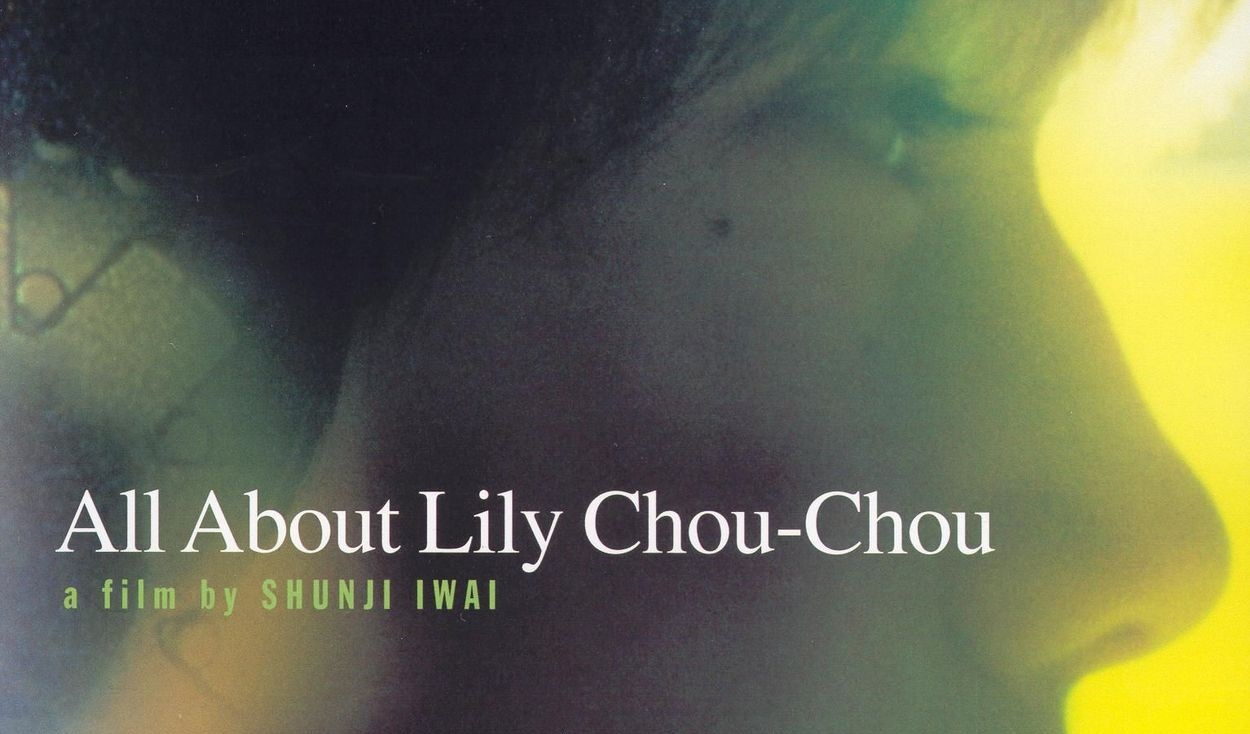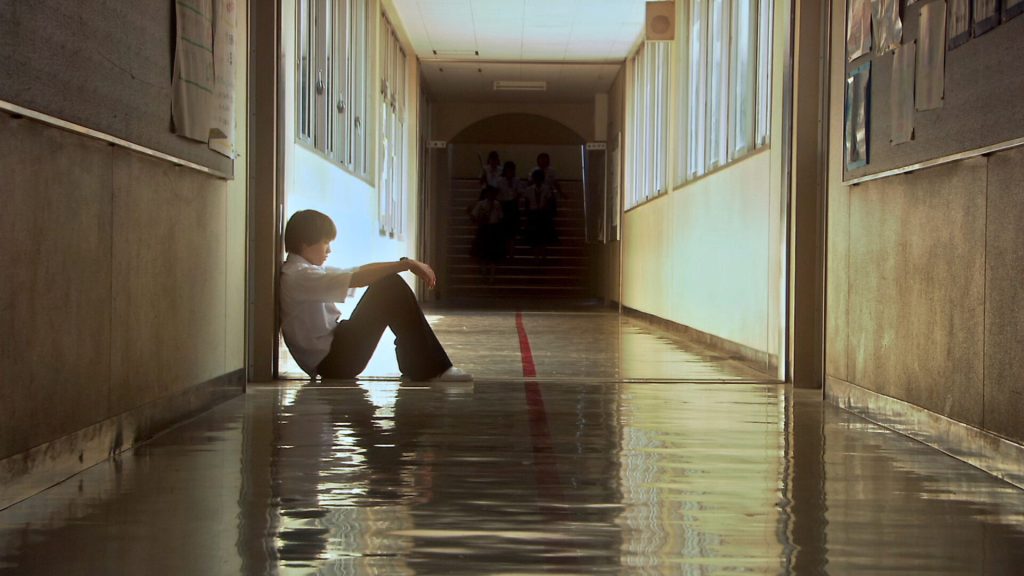Physical Address
Uttara Sector 7, Road 7, House 1, Dhaka
Physical Address
Uttara Sector 7, Road 7, House 1, Dhaka

In the vast landscape of youth cinema, All About Lily Chou-Chou (2001) by Shunji Iwai stands out as a deeply poetic and haunting exploration of adolescence, cyberculture, and isolation. Released at the dawn of the 21st century, this Japanese film captured the shifting dynamics of teenage life, where the internet began serving as both an escape and a battlefield. With its fragmented storytelling, mesmerizing cinematography, and ethereal soundtrack, the film has earned a cult status, but does it truly deserve the title of the greatest youth film of the 2000s? Let’s analyze it from multiple perspectives, including thematic depth, cultural impact, critical reception, and comparative data with other youth films of its era.

Unlike traditional coming-of-age films, All About Lily Chou-Chou is not just about the innocence of youth; it’s a raw and disturbing portrayal of adolescence, filled with bullying, emotional detachment, and existential despair. The story follows Yuichi Hasumi, a middle schooler who finds solace in the music of fictional pop icon Lily Chou-Chou. His online persona thrives in fan forums dedicated to her, but in real life, he is trapped in a cycle of cruelty and manipulation, orchestrated by his former friend, Hoshino.
The film’s non-linear narrative is constructed through online message board conversations interwoven with real-life events. Iwai shot the film digitally, embracing a raw and often grainy aesthetic that enhances its unsettling realism. The improvisational feel, combined with poetic interludes, creates an experience that mimics the fragmented and chaotic nature of teenage emotions.
Visually, Lily Chou-Chou is striking. The cinematography by Noboru Shinoda employs natural lighting and handheld camera techniques to evoke an intimate yet voyeuristic atmosphere. Key sequences, such as the vast green rice fields contrasted with the claustrophobic urban settings, serve as metaphors for freedom and entrapment. The use of color is also significant: muted and desaturated tones dominate the film, reflecting the bleakness of the characters’ lives, except for moments of musical ecstasy, where a dreamlike glow takes over the screen.
Music is central to the film’s identity. The soundtrack blends Claude Debussy’s impressionist piano compositions with Lily Chou-Chou’s ethereal J-pop, composed by Takeshi Kobayashi. The contrast between these styles mirrors the duality of Yuichi’s world—his harsh reality versus his escapist online sanctuary. Debussy’s Rêverie and Arabesque No. 1 evoke nostalgia and longing, while Lily Chou-Chou’s songs create a hypnotic, almost religious devotion among her fans. This reflects a broader commentary on the power of fandom and the internet’s ability to shape identity.
The film was ahead of its time in addressing cyberculture, a theme that would later become more prevalent in youth cinema. Released before social media took over global communication, it foresaw the psychological impact of online identities, the toxicity of internet subcultures, and the double-edged nature of digital anonymity.
Moreover, Lily Chou-Chou inspired later works dealing with internet-era adolescence, such as The Social Network (2010), Eighth Grade (2018), and Belle (2021). Its raw depiction of bullying and violence has been compared to A Brighter Summer Day (1991) and Battle Royale (2000), two other Japanese-language films that explored teenage brutality but in different contexts.
Upon release, All About Lily Chou-Chou received mixed reviews but has since been reevaluated as a masterpiece. On Rotten Tomatoes, it holds an 86% critic approval rating and a strong audience reception, particularly among those who connect with its melancholic tone. IMDb users have rated it 7.5/10, reflecting its divisive but impactful nature. The film won the Netpac Award at the Berlin International Film Festival and the Grand Prix at the Yokohama Film Festival, solidifying its artistic significance.
However, it was never a mainstream success, partly due to its unconventional storytelling and heavy subject matter. Unlike other youth films of the 2000s, such as Juno (2007) or The Perks of Being a Wallflower (2012), which had a more accessible emotional arc, Lily Chou-Chou demands patience and introspection from its audience.
To determine whether All About Lily Chou-Chou is the greatest youth film of its decade, let’s compare it with other notable works:
| Film | Year | IMDb Rating | Rotten Tomatoes Score | Themes |
|---|---|---|---|---|
| All About Lily Chou-Chou | 2001 | 7.5 | 86% | Cyberculture, isolation, bullying |
| Battle Royale | 2000 | 7.6 | 88% | Survival, violence, authority |
| Nobody Knows | 2004 | 8.1 | 93% | Abandonment, resilience, childhood |
| Juno | 2007 | 7.5 | 94% | Teenage pregnancy, independence |
| The Perks of Being a Wallflower | 2012 | 8.0 | 86% | Mental health, friendship, trauma |
While Battle Royale is more action-driven and Nobody Knows leans toward realism, Lily Chou-Chou strikes a balance between poetic abstraction and harsh reality. Though it lacks the accessibility of Juno or The Perks of Being a Wallflower, it offers a more immersive, avant-garde experience that resonates on a deeper emotional level.
The answer depends on how one defines greatness. If we consider emotional depth, cinematographic innovation, and cultural relevance, All About Lily Chou-Chou certainly ranks among the most significant youth films of the decade. However, its experimental nature prevents it from being universally acclaimed as the greatest. Instead, it remains an essential, niche masterpiece—a film that deeply impacts those who connect with its themes of alienation and escapism.
For those seeking a film that captures the essence of adolescent despair in the digital age, All About Lily Chou-Chou is an unforgettable experience that continues to be relevant in the modern world.